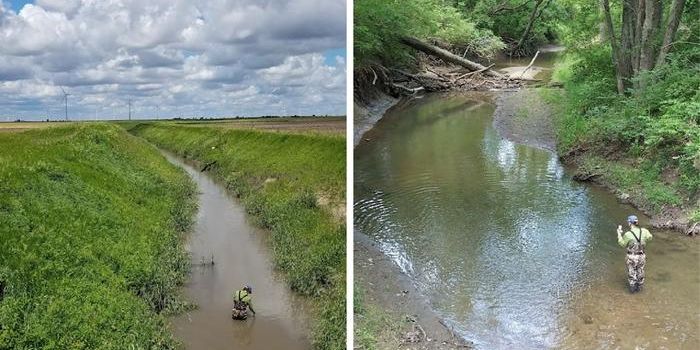Why aren't we meeting our forest restoration goals?
A new paper published recently in Conservation Letters hopes to encourage more support for countries aiming to meet their ambitious forest restoration goals. These goals encompass part of the global effort to curb climate change, reduce extinctions, and improve life in rural areas. A pledge to restore 230 million hectares of forest has already been made through the Bonn Challenge and REDD+, but as the paper elaborates, many countries are falling behind.
According to the research, which accumulated data from 62 countries’ restoration commitments, 54% of the Bonn Challenge's goal area for 2020 has not yet been pledged. The report concluded that countries in the global South comprise the biggest underperformances. There are several reasons that could be, mise the authors, led by Matthew Fagan, assistant professor of geography and environmental systems at the University of Maryland Baltimore County.
"It could be that global South countries are more aware of the risks they face from climate change, and are therefore more interested in doing something about it. They also generally have lower labor and land costs, making it easier for them to do restoration," said Fagan. Both of these factors could account for countries’ more ambitious pledges and subsequent failures to meet them. For example, Rwanda pledged to restore 81% of its total land area while Burundi pledged 79%.
In conducting study, Fagan and co-author Justin Drew completed a comprehensive analysis allowing them to identify which countries are most likely to struggle the most in fulfilling their pledges. Their analysis considered twelve factors, such as population growth, government corruption, and previous deforestation rates.
"We've identified countries that need help" to achieve their ambitious environmental goals,” says Fagan. "It's clear that there's a whole set of countries that are facing headwinds, and if we expect them to be able to accomplish their goals, then the international community needs to support them."
The researchers call on the international community for improved investment, both financial and otherwise, to support these countries’ goals in the collective fight against global warming.
"I think the wealthier countries need to get on this bandwagon and do more themselves as well," Fagan says. “We're underinvesting in the foundations, and we need to spend more international aid money on helping countries figure out how to meet these commitments," he says. "I'd like to hope that this article helps generate more support for that kind of work because I think it is possible to make this kind of change."
The authors say that international investment could take many forms, such as providing technical tools or training to help communities make informed decisions about restoration efforts. In any case, the most successful efforts will actively engage local communities and consider their needs and skills as part of the path towards a solution.
Sources: Conservation Letters, Science Daily









